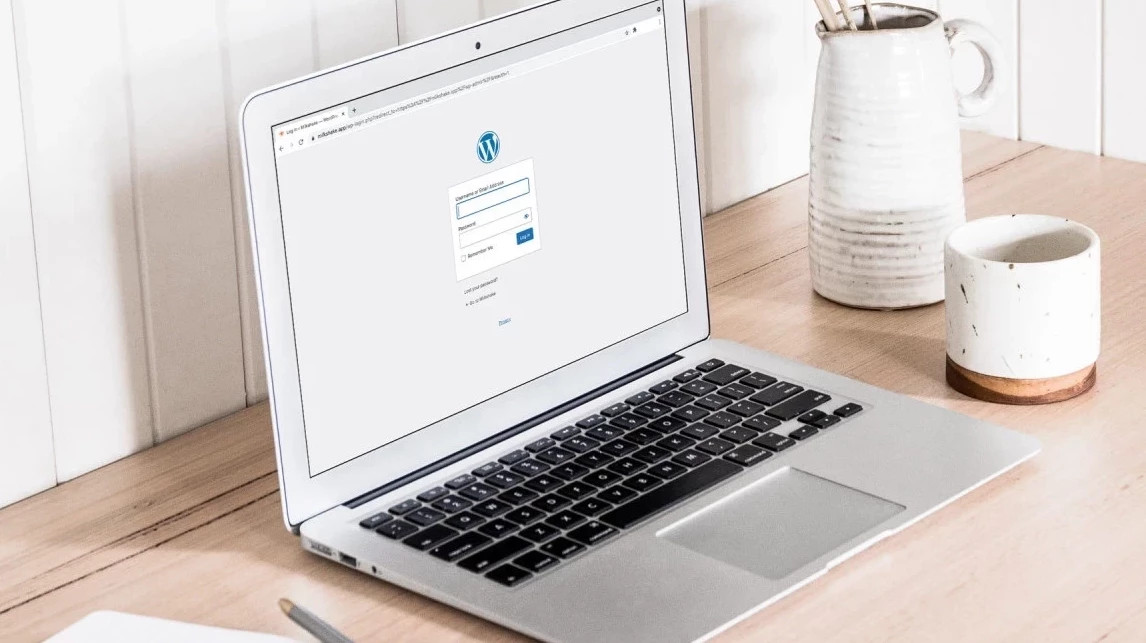Technology
March 2022
Why You Shouldn’t Use WordPress for Your Business

With nearly a third of the world’s websites currently powered by WordPress, the opinion we’re about to share in this article may seem somewhat controversial. As a web design agency, we consistently strive to offer the most astute consultancy, reliable advice and informed recommendations. Over time, we’ve assisted business owners who’ve encountered less than satisfactory experiences with WordPress, facilitating their transition towards a more optimised, sustainable, and controllable solution for their brand.
With nearly a third of the world’s websites currently powered by WordPress, the opinion we’re about to share in this article may seem somewhat controversial. As a web design agency, we consistently strive to offer the most astute consultancy, reliable advice and informed recommendations. Over time, we’ve assisted business owners who’ve encountered less than satisfactory experiences with WordPress, facilitating their transition towards a more optimised, sustainable, and controllable solution for their brand.
In short, we have reservations about WordPress. Below we’ll delve into the reasons behind our stance.
Disclaimer: We believe WordPress has its place in web development, however, we rarely come across a WordPress website that hasn’t aged badly. At Barr Media, our objective is to enlighten and discuss some viable options, empowering your business to make an informed decision when choosing a specific platform or agency. Now, without further ado, let’s unravel the details!
WordPress: Jack Of All Trades, Master Of None.
Back in 2003, when WordPress first emerged on the scene, it was merely a straightforward blogging platform designed to simplify the process of website building and content publishing for enthusiasts. However, as time passed, its functionality evolved significantly and is now utilised for various purposes, including a straightforward site management system, an e-commerce platform, a sales management system, a lead aggregator, and even intricate web applications incorporating users, APIs, big data, and more. It seems hardly any internet-based idea hasn’t been attempted with WordPress at its core.
The hitch with this is that when you attempt to be everything for everyone, you can sometimes fall short of being the best in any specific area, and unfortunately, this rings true for WordPress. The sheer multitude of plugins, themes, and solutions available for WordPress certainly lends a degree of flexibility, but this often comes at the expense of user experience, website security, performance, and the cost and maintenance required by you, the business owner.
Instead of focusing on refining and building upon the robust blogging platform it initially was, WordPress strived to transform into a universal solution. A lofty aspiration indeed, but one that has resulted in numerous shortcomings.
The Perils of Security.
As the world’s most widely used content management system (CMS), with a market share hovering around 28%, WordPress frequently finds itself in the crosshairs of hackers and spammers, trying to disrupt your website’s operations or gain unauthorised access to its backend data.
If your site serves as a complex web platform hosting user profiles, email lists, data, e-commerce systems, and payment gateways, the importance of security escalates exponentially. Any vulnerability can have catastrophic implications, potentially leading to legal ramifications and, perhaps even more damaging, eroding your company’s credibility and trust amongst your customers.
Considering these security concerns, WordPress, when used for certain applications, could pose an increased risk than other, more secure solutions.
The Pitfall of Sluggish Performance.
WordPress tends to lag behind its lightweight competitors in performance. Factors inherent to WordPress, like resource-intensive plugins, a large number of plugins, bloated backend databases, and unoptimised themes, among others, contribute to slowing down your page load speed. WordPress’s enormous flexibility often comes at the expense of performance, unless the impact on speed is considered and minimised as much as possible — a challenge that rarely exists when working with alternative solutions.
In today’s digital era, speed is of the essence for both user experience and SEO ranking. Modern users have little tolerance for slow websites, typically waiting no more than 2 seconds for a page to load. Concurrently, Google and other search engines factor in website speed when determining rankings.
Therefore, if you aim to create a complex and high-performing website, WordPress might not be your best bet.
Enjoying what you're reading?
See our workThe Trouble with Plugins.
Plugins are discrete software components that can be integrated into your WordPress website to enhance its functionality. The expansive selection of plugins available for WordPress could certainly be seen as a strength of the platform, but it’s also the source of numerous potential pitfalls, including security vulnerabilities, website instability, and more.
In terms of security, WordPress plugins are entirely third-party coded, which means your site is subjected to the coding standards of the respective plugin developer. If they didn’t prioritise security in their development process, there’s a strong possibility the plugin may contain exploitable vulnerabilities. This concern is underscored by a report from ‘wpscan.org’, which revealed that 52% of all identified WordPress security vulnerabilities can be traced back to plugins. While you could scrutinise each plugin for potential security risks, this counteracts the time-saving benefits plugins are supposed to deliver.
Besides, plugins can also degrade your website’s performance, particularly if you’ve installed a considerable number. An adept developer should strive to create the fastest loading platform feasibly, but navigating around the WordPress plugin ecosystem can make this challenging. Furthermore, there’s the looming risk of crashing your website if two plugins conflict.
Before embarking on a WordPress project, consider the plugins you might need, or consult with a developer. If your website’s functionality heavily depends on numerous plugins, it might be worth exploring other, potentially better-suited solutions.
While WordPress indeed has its merits, it’s clear that it’s not a one-size-fits-all solution. Each project requires careful deliberation and a comparison of WordPress with other potential solutions before deciding on the most fitting platform.
Seek a Tailored Solution.
For the discerning business owner, the concerns around WordPress we’ve discussed here underline the importance of considering other options. A bespoke website may require more initial investment and development time, but the result is a platform precisely tailored to your business’s needs and objectives. A custom-built website offers greater control over your online presence, from the user experience and aesthetic design to technical considerations like performance, security, and scalability.
You can, however, use an alternative website builder if you cannot afford a completely bespoke website build for your business. Platforms such as Squarespace, and Shopify, provide better intuitive interfaces, responsive design options, robust security, and high-quality support, offering a good balance between ease of use and customisation.
In the ever-evolving digital landscape, taking a proactive approach to your online presence is not just beneficial, it’s critical. Your website is often the first point of contact potential customers have with your brand, and ensuring that it is secure, efficient, and reflects your brand values can significantly influence your business’s success.
At Barr Media, we understand the complexities and nuances involved in web development. We stand ready to guide you through the process, helping you make an informed decision about the best platform for your unique needs.
Ready to create a powerful online presence for your brand? Reach out to us today and let's begin the journey towards building a website that isn’t just good, but exceptional.
